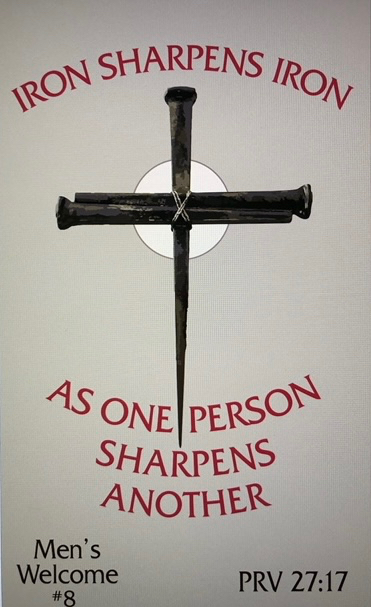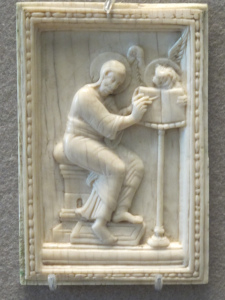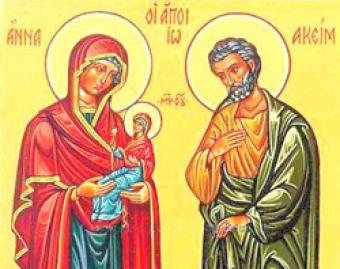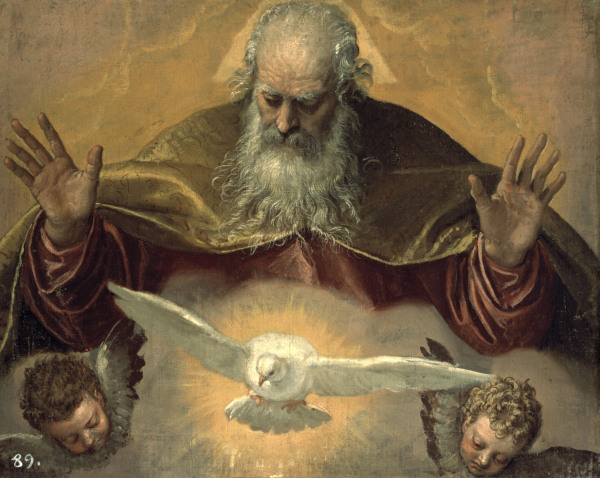Okay, so referring to Sola Scriptura as the Protestant Achilles’s Heelis not a perfect analogy. There are many weak spots in Protestant theology. But the use of the image of “Achilles’s Heel” in prose today is employed not only to accentuate a singular weakness in an otherwise impenetrable person or institution, but a particularly acute weakness. It is in that sense that I think the analogy fits.
Sola Scriptura was the central doctrine and foundation for all I believed when I was Protestant. On a popular level, it simply meant, “If a teaching isn’t explicit in the Bible, then we don’t accept it as doctrine!” And it seemed so simple. Unassailable. And yet, I do not recall ever hearing a detailed teaching explicating it. It was always a given. Unchallenged. Diving deeper into its meaning, especially when I was challenged to defend my Protestant faith against Catholicism, I found there to be no book specifically on the topic and no uniform understanding of this teaching among Protestant pastors.
Once I got past the superficial, I had to try to answer real questions like, what role does tradition play? How explicit does a doctrine have to be in Scripture before it can be called doctrine? How many times does it have to be mentioned in Scripture before it would be dogmatic? Where does Scripture tell us what is absolutely essential for us to believe as Christians? How do we know what the canon of Scripture is using the principle of sola scriptura? Who is authorized to write Scripture in the first place? When was the canon closed? Or, the best question of all: where is sola scriptura taught in the Bible? These questions and more were left virtually unanswered or left to the varying opinions of various Bible teachers.
The Protestant Response
In answer to this last question, “Where is sola scriptura taught in the Bible?” most Protestants will immediately respond as I did, by simply citing II Tm. 3:16:
All scripture is inspired by God and profitable for teaching, for reproof, for correction, and for training in righteousness, that the man of God may be complete, equipped for every good work.
“How can it get any plainer than that? Doesn’t that say the Bible is all we need?” Question answered.
The fact is: II Timothy 3—or any other text of Scripture—does not even hint at sola scriptura. It says Scripture is inspired and necessary to equip “the man of God,” but never does it say Scripture alone is all anyone needs. We’ll come back to this text in particular later. But in my experience as a Protestant, it was my attempt to defend this bedrock teaching of Protestantism that led me to conclude: sola scriptura is 1) unreasonable 2) unbiblical and 3) unworkable.
Sola Scriptura is Unreasonable
When defending sola scriptura, the Protestant will predictably appeal to his sole authority—Scripture. This is a textbook example of the logical fallacy of circular reasoning which betrays an essential problem with the doctrine itself. One cannot prove the inspiration of a text from the text itself. The Book of Mormon, the Hindu Vedas, writings of Mary Baker Eddy, the Koran, and other books claim inspiration. This does not make them inspired. One must prove the point outside of the text itself to avoid the fallacy of circular reasoning.
Thus, the question remains: how do we know the various books of the Bible are inspired and therefore canonical? And remember: the Protestant must use the principle of sola scriptura in the process.
II Tim. 3:16 is not a valid response to the question. The problems are manifold. Beyond the fact of circular reasoning, for example, I would point out the fact that this verse says all Scripture is inspired tells us nothing of what the canon consists. Just recently, I was speaking with a Protestant inquirer about this issue and he saw my point. He then said words to the effect of, “I believe the Holy Spirit guides us into all truth as Jesus said in Jn. 16:13. The Holy Spirit guided the early Christians and helped them to gather the canon of Scripture and declare it to be the inspired word of God. God would not leave us without his word to guide us.”
That answer is much more Catholic than Protestant! Yes, Jn. 16:13 does say the Spirit will lead the apostles—and by allusion, the Church—into all truth. But this verse has nothing to say about sola scriptura. Nor does it say a word about the nature or number of books in the canon. Catholics certainly agree that the Holy Spirit guided the early Christians to canonize the Scriptures because the Catholic Church teaches that there is an authoritative Church guided by the Holy Spirit. The obvious problem is my Protestant friend did not use sola scriptura as his guiding principle to arrive at his conclusion. How does, for example, Jn. 16:13 tell us that Hebrews was written by an apostolic writer and that it is inspired of God? We would ultimately have to rely on the infallibility of whoever “the Holy Spirit” is guiding to canonize the Bible so that they could not mishear what the Spirit was saying about which books of the Bible are truly inspired.
In order to put this argument of my friend into perspective, can you imagine if a Catholic made a similar claim to demonstrate, say, Mary to be the Mother of God? “We believe the Holy Spirit guides us into all truth and guided the early Christians to declare this truth.” I can almost hear the response. “Show me in the Bible where Mary is the Mother of God! I don’t want to hear about God guiding the Church!” Wouldn’t the same question remain for the Protestant concerning the canon? “Show me in the Bible where the canon of Scripture is, what the criterion for the canon is, who can and cannot write Scripture, etc.”
Will the Circle be Unbroken?
The Protestant response at this point is often an attempt to use the same argument against the Catholic. “How do you know the Scriptures are inspired? Your reasoning is just as circular because you say the Church is infallible because the inspired Scriptures say so and then say the Scriptures are inspired and infallible because the Church says so!”
The Catholic Church’s position on inspiration is not circular. We do not say “the Church is infallible because the inspired Scriptures say so, and the Scriptures are inspired because the infallible Church says so.” That would be a kind of circular reasoning. The Church was established historically and functioned as the infallible spokesperson for the Lord decades before the New Testament was written. The Church is infallible because Jesus said so.
Having said that, it is true that we know the Scriptures to be inspired because the Church has told us so. That is also an historical fact. However, this is not circular reasoning. When the Catholic approaches Scripture, he or she begins with the Bible as an historical document, not as inspired. As any reputable historian will tell you, the New Testament is the most accurate and verifiable historical document in all of ancient history. To deny the substance of the historical documents recorded therein would be absurd. However, one cannot deduce from this that they are inspired. There are many accurate historical documents that are not inspired. However, the Scriptures do give us accurate historical information whether one holds to their inspiration or not. Further, this testimony of the Bible is backed up by hundreds of works by early Christians and non-Christian writers like Suetonius, Tacitus, Pliny the Younger, Josephus, and more. It is on this basis that we can say it is an historical fact that Jesus lived, died, and was reported to be resurrected from the dead by over 500 eyewitnesses. Many of these eyewitnesses went to their deaths testifying to the veracity of the Christ-event (see Lk. 1:1-4, Jn. 21:18-19, 24-25, Acts 1:1-11, I Cr. 15:1-8).
Now, what do we find when we examine the historical record? Jesus Christ—as a matter of history–established a Church, not a book, to be the foundation of the Christian Faith (see Mt. 16:15-18; 18:15-18. Cf. Eph. 2:20; 3:10,20-21; 4:11-15; I Tm. 3:15; Hb. 13:7,17, etc.). He said of his Church, “He who hears you hears me and he who rejects you rejects me, and he who rejects me rejects him who sent me” (Lk. 10:16). The many books that comprise what we call the Bible never tell us crucial truths such as the fact that they are inspired, who can and cannot be the human authors of them, who authored them at all, or, as I said before, what the canon of Scripture is in the first place. And this is just to name a few examples. What is very clear historically is that Jesus established a kingdom with a hierarchy and authority to speak for him (see Lk. 20:29-32, Mt. 10:40, 28:18-20). It was members of this Kingdom—the Church—that would write the Scripture, preserve its many texts and eventually canonize it. The Scriptures cannot write or canonize themselves. To put it simply, reason clearly rejects sola scriptura as a self-refuting principle because one cannot determine what the “scriptura” is using the principle of sola scriptura.
Sola Scriptura is Unbiblical
Let us now consider the most common text used by Protestants to “prove” sola scriptura, II Tm. 3:16, which I quoted above:
All scripture is inspired by God and profitable for teaching, for reproof, for correction, and for training in righteousness, that the man of God may be complete, equipped for every good work.
The problem with using this text as such is threefold: 1. Strictly speaking, it does not speak of the New Testament at all. 2. It does not claim Scripture to be the sole rule of faith for Christians. 3. The Bible teaches oral Tradition to be on a par with and just as necessary as the written Tradition, or Scripture.
1. What’s Old is Not New
Let us examine the context of the passage by reading the two preceding verses:
But as for you, continue in what you have learned and have firmly believed, knowing from whom you learned it and how from childhood (italics added) you have been acquainted with the sacred writings which are able to instruct you for salvation through faith in Jesus Christ.
In context, this passage does not refer to the New Testament at all. None of the New Testament books had been written when St. Timothy was a child! To claim this verse in order to authenticate a book, say, the book of Revelation, when it had most likely not even been written yet, is more than a stretch. That is going far beyond what the text actually claims.
2. The Trouble With Sola
As a Protestant, I was guilty of seeing more than one sola in Scripture that simply did not exist. The Bible clearly teaches justification by faith. And we Catholics believe it. However, we do not believe in justification by faith alone because, among many other reasons, the Bible says, we are “justified by works and not by faith alone” (James 2:24, emphasis added). Analogously, when the Bible says Scripture is inspired and profitable for “the man of God,” to be “equipped for every good work,” we Catholics believe it. However, the text of II Tim. 3:16 never says Scripture alone. There is no sola to be found here either! Even if we granted II Tm. 3:16 was talking about all of Scripture, it never claims Scripture to be the sole rule of faith. A rule of faith, to be sure! But not the sole rule of faith.
James 1:4 illustrates clearly the problem with Protestant exegesis of II Tim. 3:16:
And let steadfastness (patience) have its full effect, that you may be perfect and complete, lacking in nothing.
If we apply the same principle of exegesis to this text that the Protestant does to II Tm. 3:16 we would have to say that all we need is patience to be perfected. We don’t need faith, hope, charity, the Church, baptism, etc.
Of course, any Christian would immediately say this is absurd. And of course it is. But James’s emphasis on the central importance of patience is even stronger than St. Paul’s emphasis on Scripture. The key is to see that there is not a sola to be found in either text. Sola patientia would be just as much an error as is sola scriptura.
3. The Tradition of God is the Word of God
Not only is the Bible silent when it comes to sola scriptura, but Scripture is remarkably plain in teaching oral Tradition to be just as much the word of God as is Scripture. In what most scholars believe was the first book written in the New Testament, St. Paul said:
And we also thank God… that when you received the word of God which you heard from us, you accepted it not as the word of men but as what it really is, the word of God… (I Thess. 2:13)
II Thess. 2:15 adds:
So then, brethren, stand firm and hold to the traditions you have been taught by us, either by word of mouth or by letter.
According to St. Paul, the spoken word from the apostles was just as much the word of God as was the later written word.
Sola Scriptura is Unworkable
When it comes to the tradition of Protestantism—sola scriptura—the silence of the text of Scripture is deafening. When it comes to the true authority of Scripture and Tradition, the Scriptures are clear. And when it comes to the teaching and governing authority of the Church, the biblical text is equally as clear:
If your brother sins against you go and tell him his fault, between you and him alone … But if he does not listen, take one or two others with you … If he refuses to listen … tell it to the church; and if he refuses to listen even to the church, let him be to you as a Gentile and a tax collector. (Mt. 18:15-17)
According to Scripture, the Church—not the Bible alone—is the final court of appeal for the people of God in matters of faith and discipline. But isn’t it also telling that since the Reformation of just ca. 480 years ago—a reformation claiming sola scriptura as its formal principle—there are now over 33,000 denominations that have derived from it?
For 1,500 years, Christianity saw just a few enduring schisms (the Monophysites, Nestorians, the Orthodox, and a very few others). Now in just 480 years we have this? I hardly think that when Jesus prophesied there would be “one shepherd and one fold” in Jn. 10:16, this is what he had in mind. It seems quite clear to me that not only is sola scriptura unreasonable and unbiblical, but it is unworkable. The proof is in the puddin’!
If you liked this post and you would like to dive deeper into this topic and more, click here.









